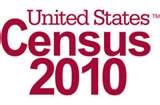 News last year of a dead U.S. Census worker found hung from a tree near a Kentucky cemetery rocked most of the nation. The extreme shock came when authorities found the body of Bill Sparkman with the word “fed” scribbled across his chest in black marker and his Census ID card taped to his head. Police later concluded that 51-year-old Sparkman killed himself trying to make his death look like a murder to collect on an insurance policy.
News last year of a dead U.S. Census worker found hung from a tree near a Kentucky cemetery rocked most of the nation. The extreme shock came when authorities found the body of Bill Sparkman with the word “fed” scribbled across his chest in black marker and his Census ID card taped to his head. Police later concluded that 51-year-old Sparkman killed himself trying to make his death look like a murder to collect on an insurance policy.
This year the U.S. government is spending $340 million on advertising and marketing to help spur people to respond to the Census form by mail. The Census Bureau projects for every one percentage point increase in the national mail back participation rate for the 2010 Census, the federal government saves $85 million in taxpayer money (so they don’t have to pay Census workers to knock on doors).
The strategy makes sense, although selling it to an increasingly skeptical public still recovering from GBS (government bailout syndrome) can be a daunting task. Survey participation rates for the Census have continued to decline over the past 30 years and the public is still unaware of its basic features.
The Census however has a bigger problem than mail response rates. Bill Sparkman, for instance, was aware of the rise in anti-government fervor in the United States. His suicide proved that. Many citizens initially thought his death was retaliation against government involvement in the Census. What’s troubling is that this sentiment is not only coming from extremist groups, but mainstream organizations like the GOP and newly formed Tea Party, who are stepping up their negative, anti-government, anti-establishment rhetoric.
So far, the Census this year is on track to match or surpass the 2000 mail-back rate of 72%. This so-so response may not be the results needed to quell citizen backlash for the hundreds of millions of dollars being spent on marketing. Some may argue otherwise. Either way, the Census Bureau needs to focus more on why the survey is needed, even including reasons for race identification, which is required for many federal programs and is critical in making policy decisions. Many citizens are leery of these questions, not realizing their importance as well as the Census’ mandate by the U.S. Office of Management and Budget.
Communicating these reasons may prove to be a challenge for the Census Bureau and can easily backfire, while conjuring up heightened racial tensions. This is the reality of the Census and how the U.S. government works at the moment. Americans can handle the truth however, regardless of what some fringe groups may believe. The Census must aggressively promote the “substance” of its existence. If not, then it will never achieve its true brand value.
